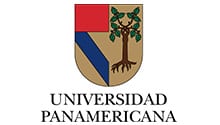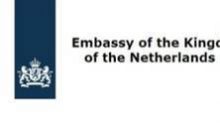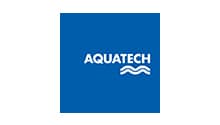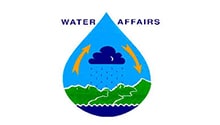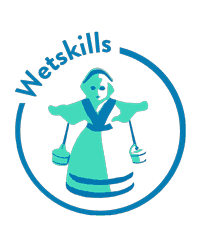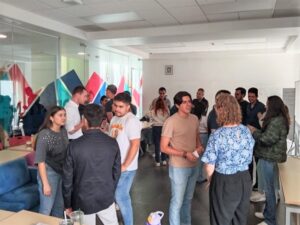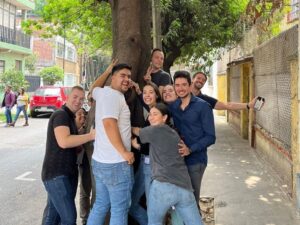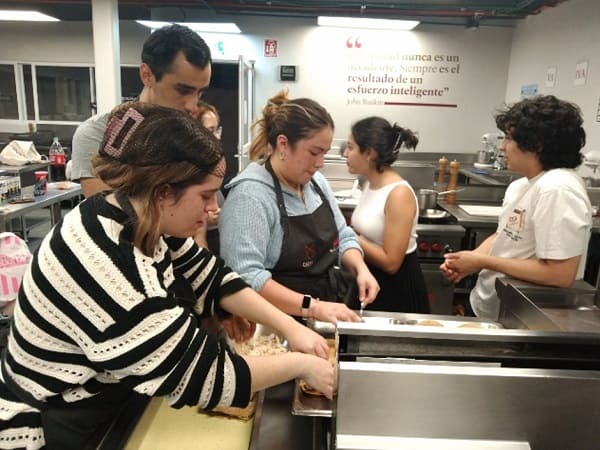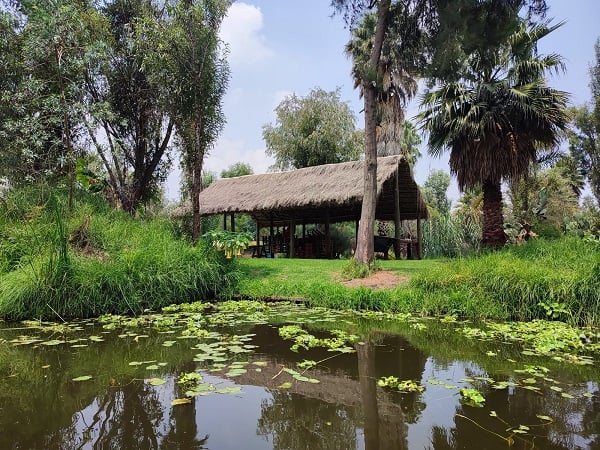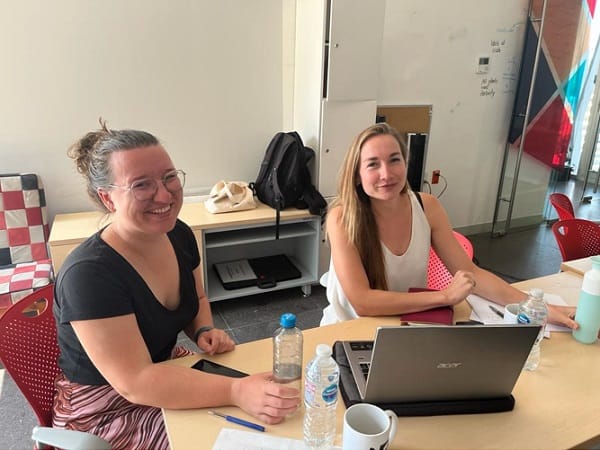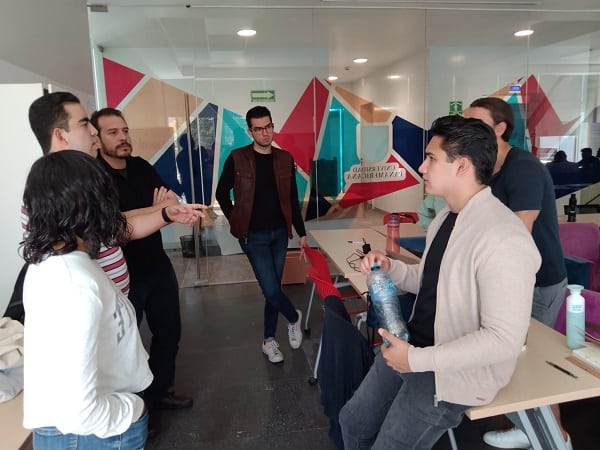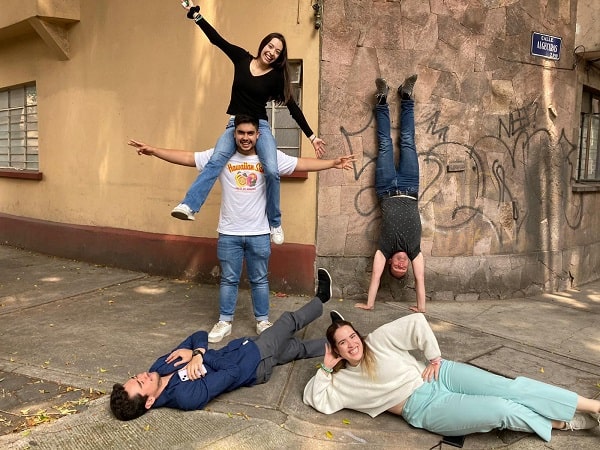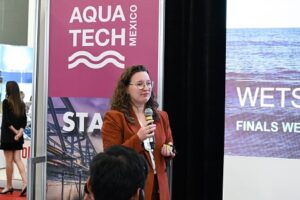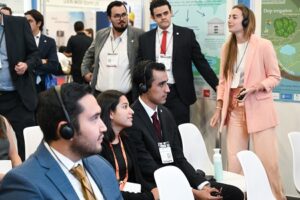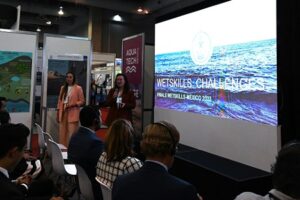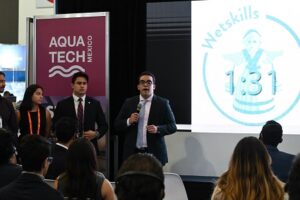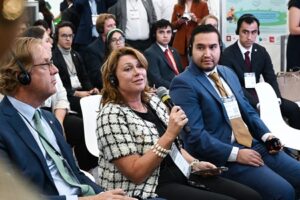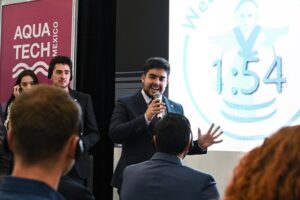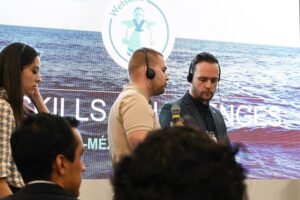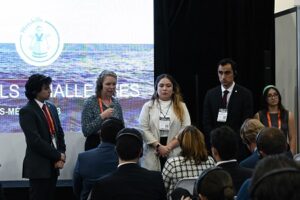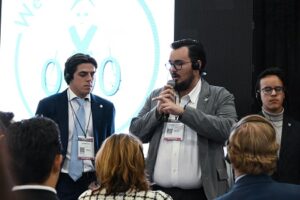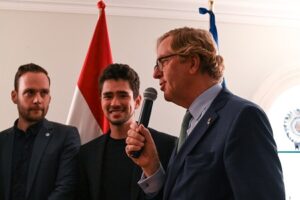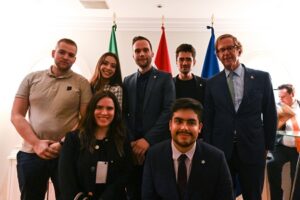
- This event has passed.
Wetskills-México 2023


Water solutions for Mexico: join Wetskills
After a great experience in Mexico in 2019, we were back for the second Wetskills event in Mexico! Wetskills Foundation and partners were organizing this Wetskills-Mexico 2023 event and water challenge in Mexico City (27 August – 7 September), where Universidad Panamericana was our host for the two weeks program.
We started with a great speed-date, crazy88 and tour on the campus, to get to know each other and our host. Read our blogs, find more on the cases we were working on, and nice pictures of the Finals at Aquatech and the Awarding the Dutch Embassy.
Group picture at our visit to Aquatech!
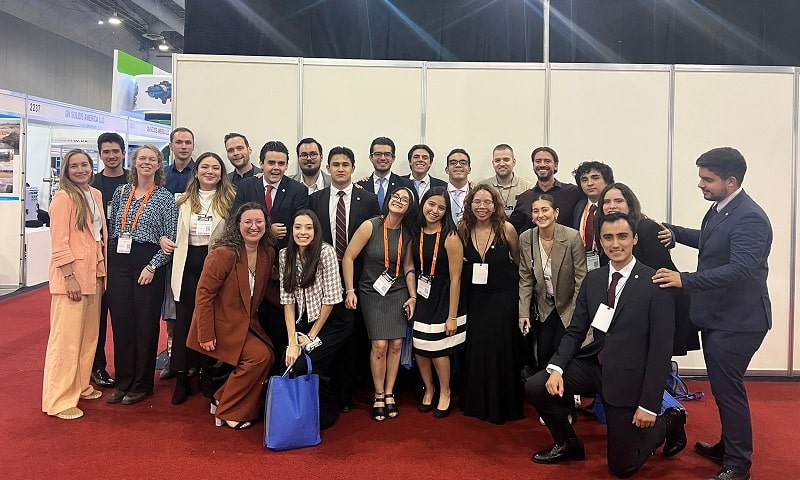
Event info

Follow Wetskills
Movie of the first event in Mexico, in 2019
Joining this Wetskills Event – What do you get?
A unique learning experience where you will tackle real-life water challenges with your own team!
- You will increase your skills in: international cooperation; problem solving, cross-cultural and interdisciplinary teamwork, networking and presenting (pitch & poster);
- You will get the opportunity to connect with other international water students/young professionals;
- You will exclusively visit the Wetskills finals and awarding at the Aquatech-Mexico Exhibition & Conference;
- You will visit Mexico City and surroundings: water-related, natural and cultural sites, and meetings with water experts;
- You will learn, network and experience more about international and regional water challenges, the main stakeholders and organizations, contemporary issues and current business opportunities;
- You will receive a certificate of participation upon completion of the program.
More information
Contact: Johan Oost, johan.oost@wetskills.com
Event blogs

Excursion to Xochimilco
Just like water, every day brings its own flow
Diving into the topics
Start of Wetskills Mexico
Finals and Awarding Ceremony, with pitches by all teams on the solution for their case.
Event Cases

Case 1: Water treatment in Tequila producing areas
Case owner: UCY México
Tequila is a fast-growing product from México. At its production process, a lot of valuable resources are being wasted, while sometimes polluting the environment. UCY México, with support from Colubris Cleantech B.V. has the vision of recovering, and to put into reuse, as much by-products as possible from vinasses, the wastewater from Tequila production. For an efficient and integral solution, there are different areas to look for improvement in the current way of producing Tequila, while also looking at risk analysis, business plan and ecological impact.
Case 2: Strategies for sustainable water use of Avocados farming
Case owner: Water Footprint Implementation
The global avocado market is expanding rapidly and Mexico is one of the prime exporters. Mexico’s avocado industry has flourished in recent years, with the fruit becoming a global sensation. However, this success comes at a significant cost: avocado farming demands substantial water resources, especially in regions like Michoacán, Mexico’s primary avocado-producing state. How can Michoacán develop innovative solutions that mitigate the water scarcity issue while sustaining local economies, taking into consideration the avocado farming?
Case 3: Solutions for a small city with a world’s heritage site
Case owner: Hoogheemraadschap Hollands Noorderkwartier
The city center of Tlaxcala has more than two hundred buildings considered as monuments. Some of them have reached the status of World’s heritage by Unesco. To preserve them, there have been many improvements in the infrastructure of the city. However, due to climate change, heavy rains are more frequent, and at some moments the drainage systems are not enough to deal with the amount of rain. What actions can be made to improve the sanitation systems, and protect buildings, houses and natural environment in the city and surroundings?
Case 4: Water management around Mexico City’s new Airport
Case owner: Hoogheemraadschap Hollands Noorderkwartier
The municipality of Zumpango in the metropolitan region of Mexico City is a located in a naturally closed basin, where Zumpango lake is surrounded by urban areas. The municipality itself has more than one million inhabitants. The zone faces water problems of floodings in rainy seasons, pollution, smells and growing water scarcity in the dry season. A new airport has recently started its operations, which in the future could increase the urbanization of the region. How can a water management program help improve the current and future situation, for inhabitants and agriculture?
Event Partners

